July in Dubai means one thing—heat, and lots of it. But at Port Rashid’s Flat12 Cafe, the searing temperatures do little to slow the buzz of car enthusiasts. This spot, owned by a figure well-known in Dubai’s racing scene, hosts a group of affluent friends who start their Saturdays by driving prized cars, then retreat to the cafe for shade and conversation.
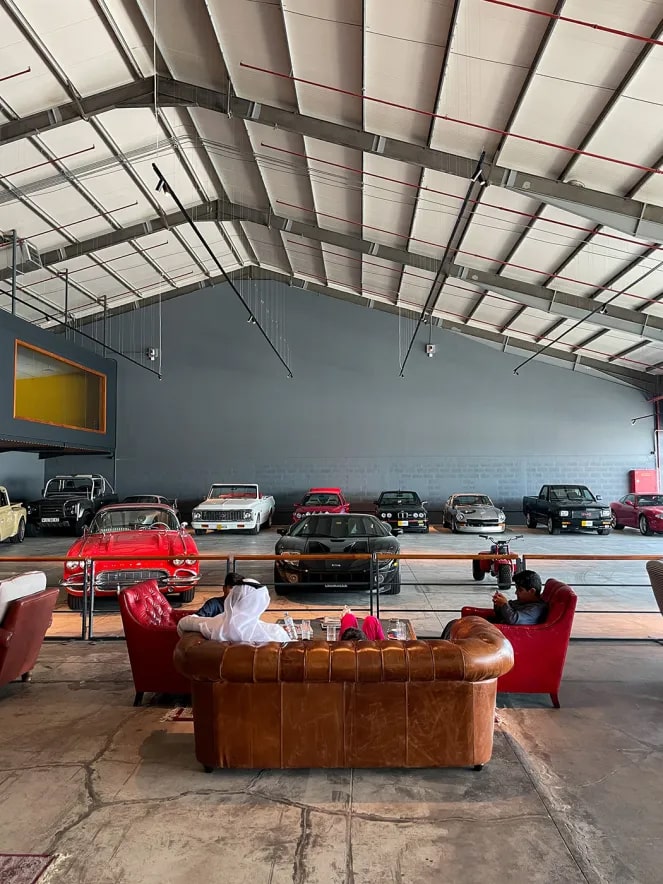
“What’s the hottest car in Dubai right now?” Al Shasia asked, glancing at the passion lighting up their eyes. The answer was unanimous: “Jetour, the Chinese Defender,” said six out of ten, smiling through their traditional white robes. And while no one had asked specifically about Chinese cars, it was clear this wasn’t just a trend. Jetour’s rapid rise over the last six months has stretched far beyond comparisons with other Chinese brands.
According to sources at Al Shasia, more than 400 Jetour T2 units were sold in Dubai in March alone, with sales growth skyrocketing between 200–300% in the first half of the year. To put that into perspective, major Chinese automaker BYD recently celebrated a milestone of 1,000 cars sold in Dubai, but Jetour’s monthly sales are already rivaling that number.
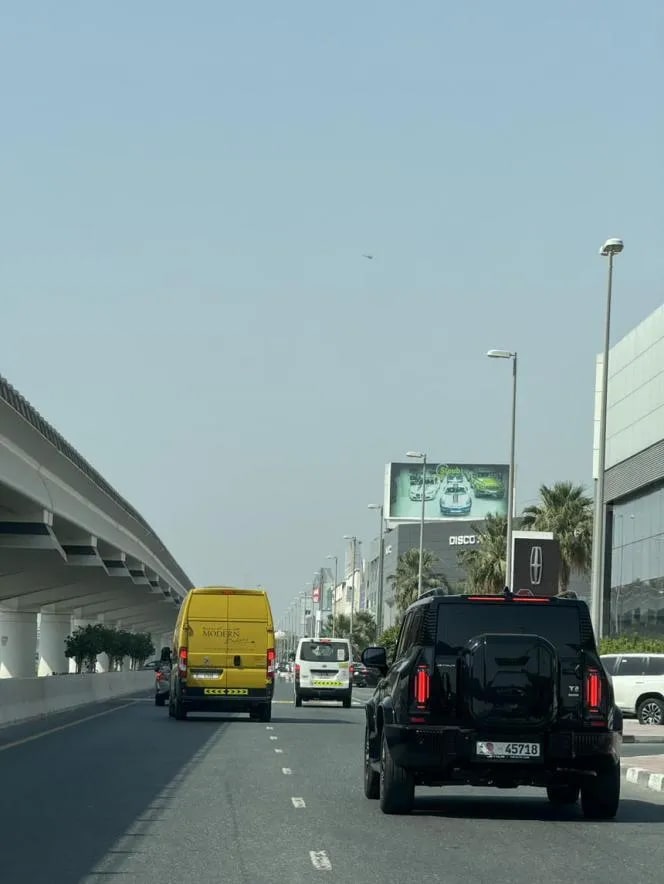
How did Jetour take over the Middle East?
The Middle East’s love affair with SUVs
SUVs have always sold well in the Middle East. But what makes them such a staple? The desert terrain isn’t as much a factor as you might think—most SUV owners don’t visit the desert even once a year. Nor is it about engine size; big engines are beloved across all vehicle types here. And while there’s loyalty to brands like Toyota, many locals have grown tired of seeing the same designs year after year.
In truth, it comes down to everyday practicality. SUVs meet two critical needs: fitting large families and handling the extreme heat. In places like the UAE, where the average household size is five, compared to 2.6 in China, space is non-negotiable. Families here gather often, with siblings hosting weekly social events, so there’s always a need for outings. Add in the nine months of blistering heat, and the demand for excellent air conditioning, stability, and comfort becomes clear.
So while the SUV market is competitive—with Toyota, Nissan, and Land Rover offering models tailored to the region—Jetour’s success lies in how well it understands these local needs.
Jetour’s rise is rooted in its sharp focus on large family transportation, paired with tech-savvy features at an affordable price. Jetour models, like the T2, are packed with spacious interiors, smart screens, and high-tech services, giving them a value-for-money edge over the competition.
Founded in 2018, Jetour identified a niche that others hadn’t fully tapped into. While this market might still be growing in China, the timing in the Middle East couldn’t be more perfect.
What’s more, the resemblance between Jetour’s boxy T2 and the Land Rover Defender—a favorite among Middle Eastern drivers—has also boosted its appeal. Add a few tweaks like a blacked-out look, and the T2 easily channels the luxury of the Defender at a fraction of the cost.
A pricing model locals can’t resist
Unlike in China, where many buyers are first-time car owners, most buyers in the Middle East—especially in Gulf states like the UAE and Saudi Arabia—are purchasing their second or third vehicle. These consumers know exactly what they want, making price a crucial factor.
One of Jetour’s biggest advantages is its pricing model.
In the UAE, the Jetour T2 is priced between AED 120,000–150,000 (USD 32,670–40,838). Al Shasia compared this to similar SUVs and found that vehicles with comparable space and features from non-luxury brands cost at least twice as much, while luxury brands were priced up to five times higher. The active secondhand car market in the Middle East also showed that even mid- to high-end used SUVs with similar features were more expensive than a new Jetour.
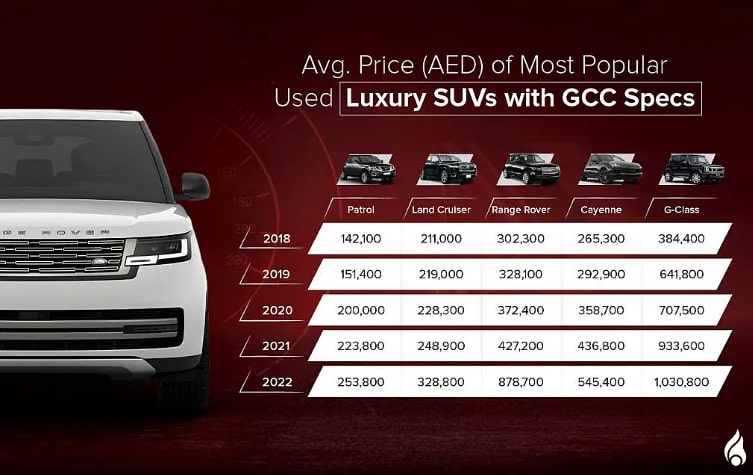
Jetour’s pricing strategy was found to revolve around two key principles:
- The vehicle’s perceived value is at least double its actual price.
- The price of a new Jetour is lower than the price of secondhand competitors with similar features and designs.
This strategy was evident in a Jetour showroom visit. A local woman, drawn by the prices, explored her options. The salesperson offered her a ten-year maintenance package, four color choices, and delivery within three to four months. That sealed the deal, and she placed an order on the spot, paying a deposit of AED 10,000 (USD 2,722). As she completed the transaction, she remarked, “I’ve been waiting for my Land Rover Defender for two and a half months with no delivery date, and only one color option. Forget it, Jetour at this price is perfect.”
This encounter highlights how Jetour’s pricing hits the sweet spot. It’s telling when wealthy buyers attach two-digit license plates—valued at nearly AED 1 million (USD 272,254)—to their Jetour SUVs. The brand’s value proposition is hard to resist.
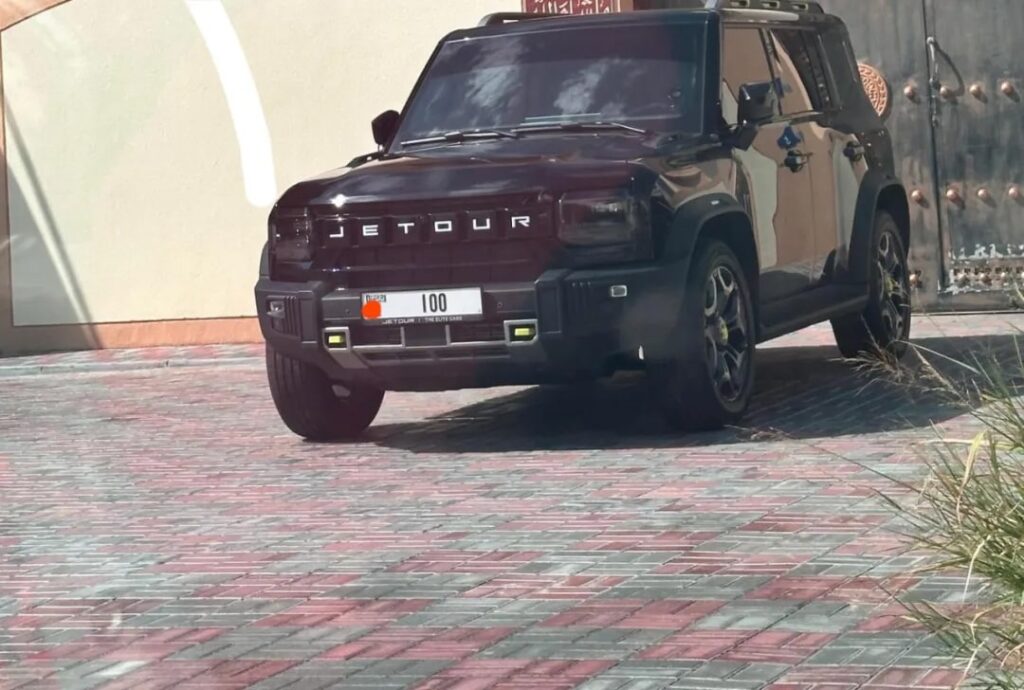
Picking the right, not the biggest distributor
It’s important to note that foreign automakers must collaborate with local companies to sell cars in the Middle East due to regional protectionist policies. Over time, these local distributors have evolved into integrated businesses that handle logistics, sales, after-sales services, and even official secondhand car operations. Selecting the right local partner is critical for any Chinese automaker aiming for success in the Middle East.
While many leading Chinese automakers have aligned with the region’s most prominent family-owned enterprises—BYD with Al-Futtaim, Geely with Al Rostamani, and Great Wall Motors with Al Naboodah—Jetour took a different approach by partnering with Elite Cars, a relatively lesser-known entity.
Elite Cars established its reputation in the mid- to high-end secondhand car market. Unlike traditional distributors who “sell what’s available,” used car dealers are more attuned to customer preferences and often have a loyal customer base. This expertise was key in positioning Jetour as a “high-value premium SUV.”
Compared to large family-owned conglomerates, Elite Cars has an additional advantage: focus and agility. This partnership marks Elite Cars’ first venture into new car distribution, and unlike other distributors that manage multiple brands, Elite Cars is solely dedicated to Jetour. This singular focus allows the company to respond quickly and adapt to market demands. For example, it opened Jetour showrooms on less prominent streets, cutting costs while enhancing the customer experience. Elite Cars also created a dedicated service center for Jetour and swiftly introduced financing options for buyers.
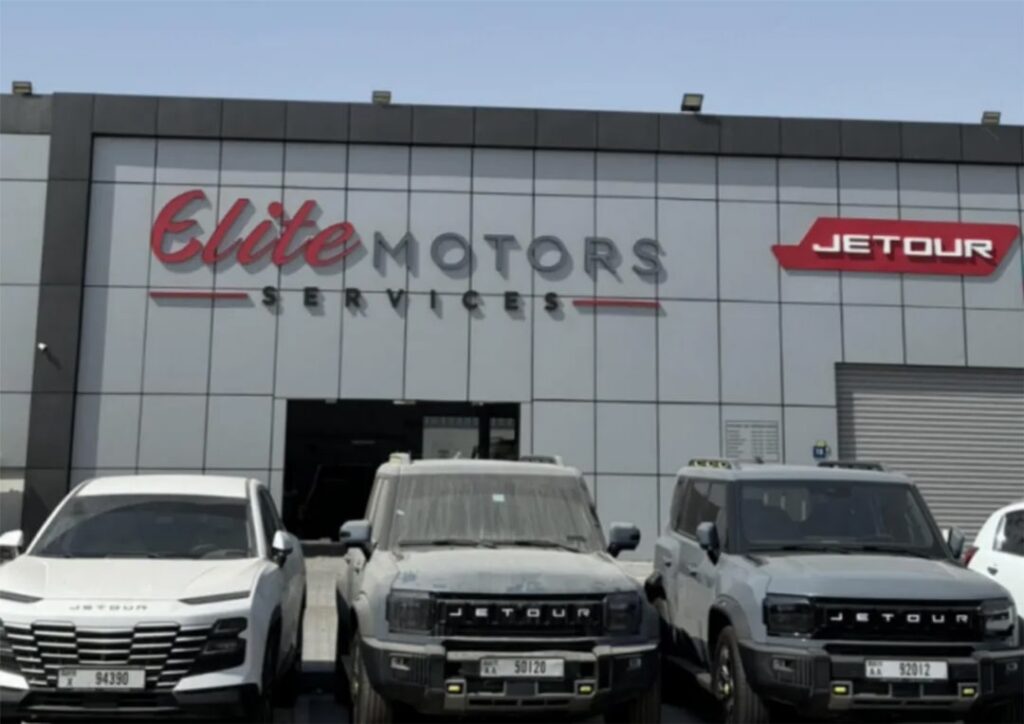
Elite Cars’ flexibility extends to its digital strategy as well. Jetour became the first Chinese automaker to light up the Burj Khalifa in Dubai, and its local social media presence is robust. Elite Cars leveraged local influencers to build brand recognition, bringing Jetour closer to consumers.
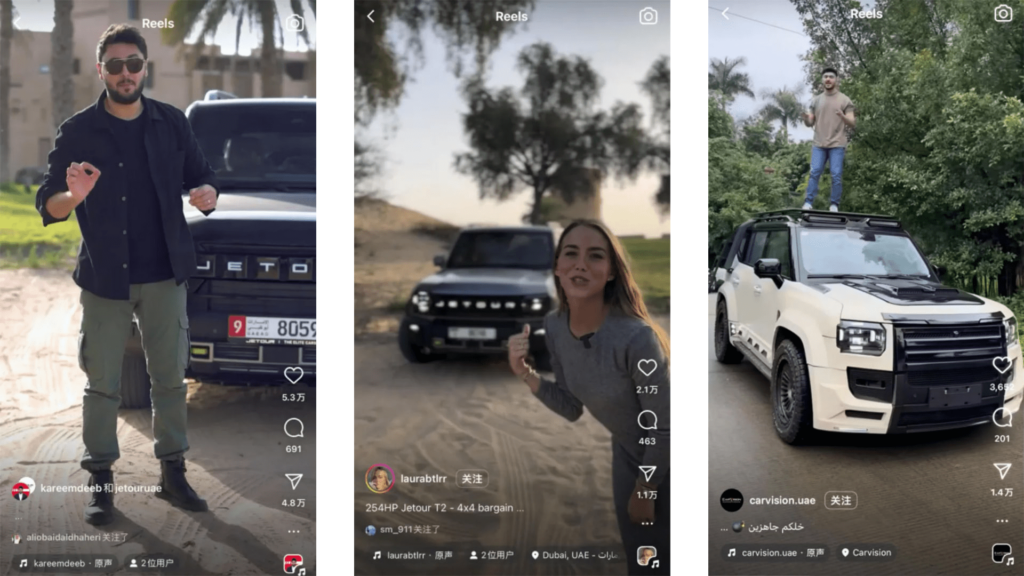
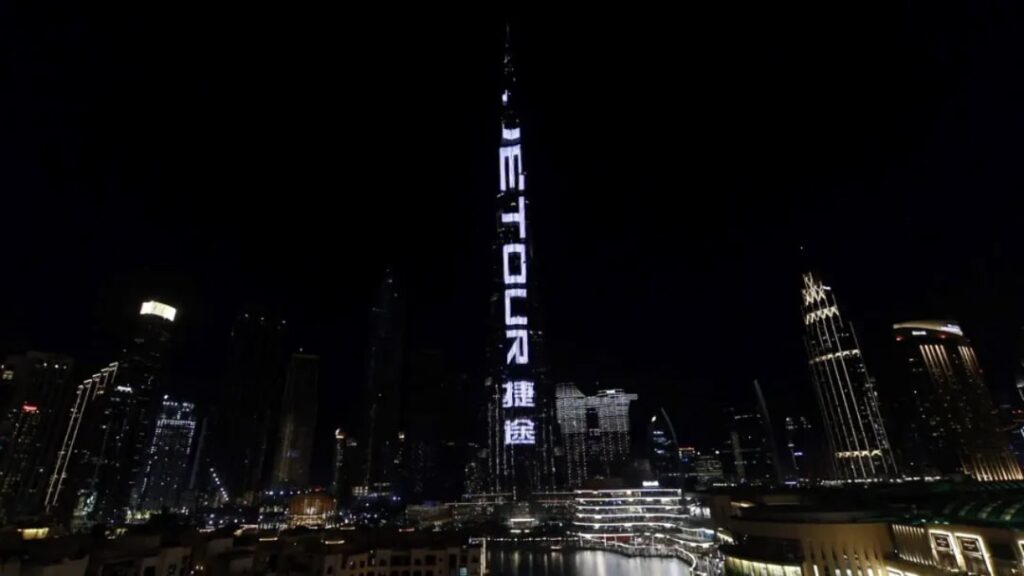
The success of Jetour’s partnership with Elite Cars offers valuable insights for other Chinese automakers entering the Middle East. According to internal data, Jetour is now the bestselling Chinese car brand in the UAE, and Elite Cars received the “Market Share Breakthrough Award” at Jetour’s 2024 business conference.
Analyzing the factors behind Jetour’s success highlights several key lessons for automakers in the Middle East:
- Product: Rapid growth requires a deep understanding of local consumer needs, with the right product serving as the foundation.
- Pricing: Mastering the balance between perceived value and actual price is critical. Positioning a mid-range product as high-end has proven to be a winning formula.
- Partnerships: Local partnerships should be based on complementary strengths. The right partner depends on the automaker’s own capabilities.
Jetour has capitalized on a unique window of opportunity in the UAE and the Middle East, moving swiftly while other Chinese automakers are still refining their strategies. However, as more Chinese brands expand into the region, Jetour will face increasing competition in the future.
This article was adapted based on a feature originally written by and published on Al Shasia (WeChat ID: ShunShiZhongDong). KrASIA is authorized to translate, adapt, and publish its contents.
